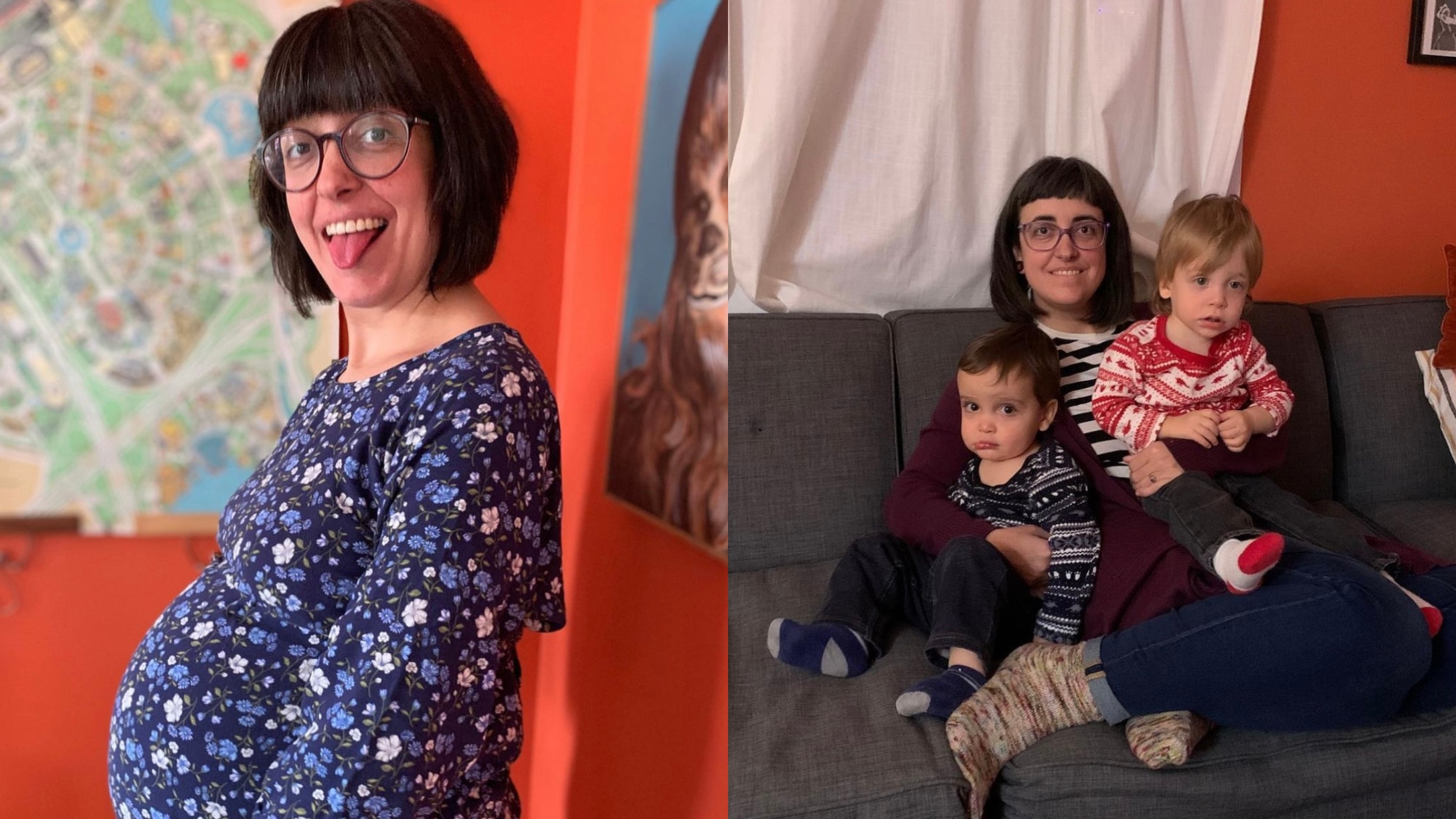
In January 2023, Lindsay Clancy allegedly killed her children and attempted to kill herself, in what experts now say may have been due to postpartum psychosis. We often hear about postpartum depression, but postpartum psychosis is even rarer, and Clancy's case not only shed light on the issue but also made us all aware that it can end in tragedy. Postpartum psychosis is a challenging mental illness that is not unique to Clancy, and it can wreak absolute havoc on families.
Tony Pacitti and his wife, Sondra, were expecting twin sons just as the COVID-19 pandemic began. Our world was changing, and there was significant fear of the unknown. It was challenging and sometimes terrifying for families having babies during this time. The Pacittis knew life would be different when their sons were born, but they had no idea how life was about to change.
More from CafeMom: New National Maternal Mental Health Hotline Had 12,000 Interactions in Its First Year
The pregnancy was relatively easy.
In an essay for Rhode Island Monthly, Tony Pacitti wrote that Sondra's pregnancy with Lorenzo and Max was mostly normal until her blood pressure began to climb at the end, and preeclampsia threatened the babies and the mother. The family's doctor performed a C-section in early April 2020, and the boys were born healthy. Sondra's delivery was uncomfortable, and she stayed in the hospital for four days. After she was discharged, she felt unwell due to excessive swelling in her legs.
"Forty-eight hours after she was discharged, it got so bad that I took her back to the hospital," the concerned husband wrote. "Once she was there she began to act paranoid about what her doctors were telling her, and she'd get stuck in weird conversational loops and sometimes speak nonsense. Fearing that something might be wrong, I found it harder to leave her bedside."
He said things began to improve, and he hoped her behavior was just because she was an exhausted new mom.
As the boys grew, things got worse.
Tony explained that around the time the boys turned 5 weeks old, Sondra began to disconnect from their family. But she was active with a therapist and a postpartum group for new mothers.
"Despite that, she began to distrust her caregivers again, and now it extended to our sons. She believed in her bones that there was something wrong with them. Nothing that I or our pediatrician told her, or even the two thriving babies in front of her, could change her mind," he said.
Tony was able to talk to his wife, who admitted she was having thoughts of suicide. He took her for inpatient treatment.
She spent 40 days in the hospital due to postpartum psychosis.
In a second essay for Insider, Tony said his wife was in the facility in Providence, Rhode Island, alone, and he couldn't visit her due to pandemic restrictions. He would speak with her on the phone, but she continued to be withdrawn and said she did not love their children.
She also said she didn't want to be a mom. Tony said he knew that wasn't true and just wanted to make her better.
He lamented about survivor's guilt and how his love for his children and the joy he experienced with them was sometimes thwarted by his love for his wife and his wishes that she could share the same thrills.
The family chose an extreme treatment plan.
Sondra did not respond to medications, so they decided to try electroconvulsive therapy. There were risks with ECT, and Sondra lost her memories. She did not know her sons or remember giving birth. She also does not remember her intrusive or suicidal thoughts. She had to work to make new memories with her family.
"By the holidays, new memories finally started to stick. The memories she lost would never return, but we've talked extensively about what went on while she was away, and she knows that anytime she feels curious, I'm ready to recall what I can on demand," Tony wrote.
More from CafeMom: Michigan Mom, 2 Sons Found Frozen to Death in Field After Apparent 'Mental Health Crisis'
Three years later, Tony is still affected by the traumatic experience.
"I watched her lose her mind, I heard her say she wanted to end her life, and I got a brief, bitter taste of a world without her. Along with the memory of the time she missed, I carry the fear that her psychosis might return at any moment," he wrote.
Tony credits the experience for helping make him the dad he is and admits that although things are better, he is still slightly afraid and probably will always be.
Note: If you or any of your loved ones are struggling with suicidal thoughts, you can always reach out to the 988 Suicide & Crisis Lifeline by calling 988. They are available 24/7 by phone or online chat.




